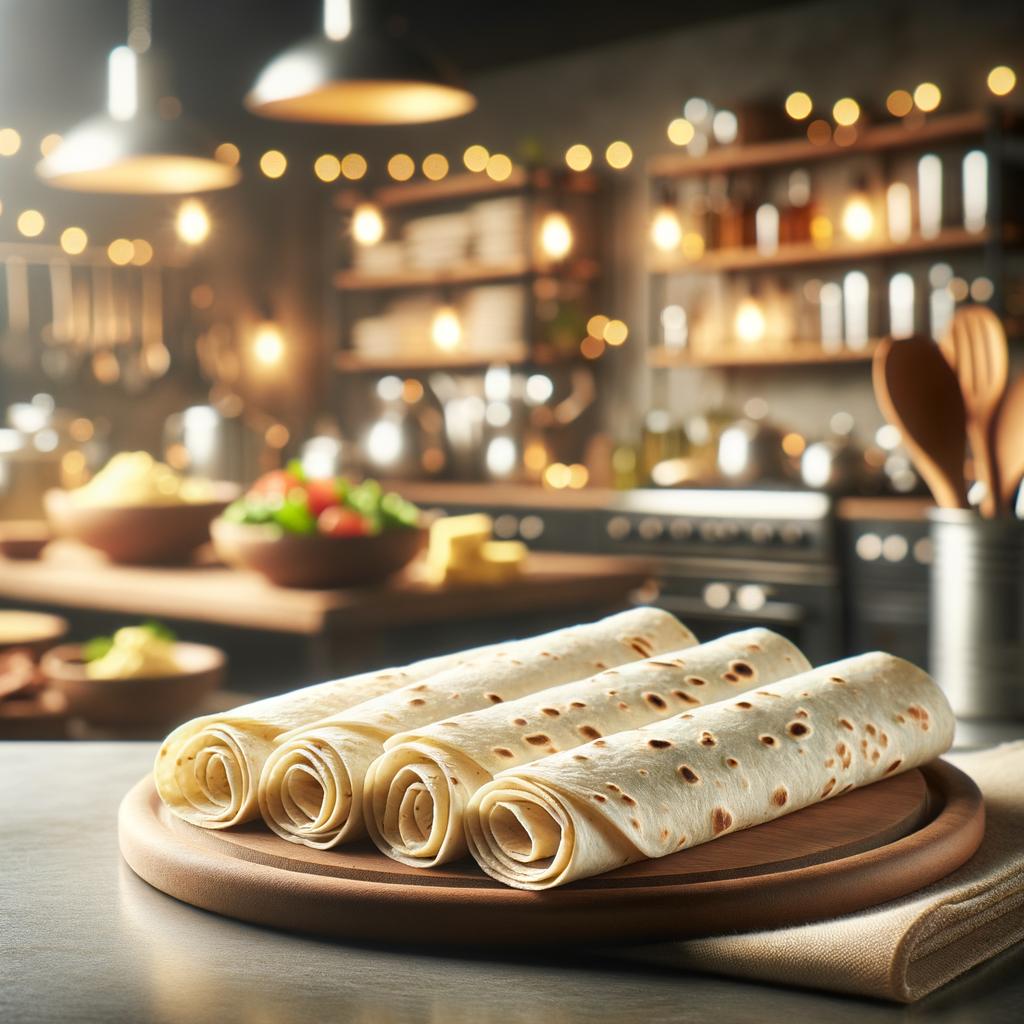Tortilla Wraps

Description
The humble tortilla wrap is a staple in many kitchens worldwide, originally hailing from the vibrant culture of Mexico. These round, flat discs are typically made from either corn or wheat flour, offering an enticingly soft and pliable texture that makes them a versatile base for countless dishes. Their color varies from white to yellow, depending on the type of flour used. The flavor profile of tortilla wraps is subtly earthy, acting as a blank canvas that soaks up the flavors of the ingredients it envelopes. A unique characteristic of tortilla wraps is their incredible versatility and adaptability. Whether they're rolled, folded, or stacked, tortilla wraps are a delicious foundation for a plethora of culinary creations.
Primary Uses
Tortilla wraps are the backbone of numerous dishes across various cuisines. In Mexican cuisine, they're used in classics such as burritos, tacos, enchiladas, and quesadillas. In more contemporary, fusion-style cooking, tortilla wraps are used to create delightful sandwiches, wraps, and even desserts. Beyond their culinary uses, tortilla wraps hold a significant cultural value in Mexico, where they're considered a symbol of unity and togetherness, often shared among family and friends during meals.
History
The history of tortilla wraps is steeped in the rich tapestry of Mexican culture. They date back thousands of years to the ancient Aztec civilization, where they were a staple food item. Over time, their popularity spread to other parts of the world, thanks in part to Spanish explorers who brought them back to Europe. There's an old Mexican myth that tortillas were a gift from the gods, given to sustain mankind, which speaks to their deep-rooted cultural significance. Over the centuries, tortilla wraps have evolved from a basic sustenance food to a global culinary sensation, celebrated for their versatility and deliciousness.
Nutritional Information
Tortilla wraps, particularly those made from whole grains, are a good source of complex carbohydrates, providing energy to keep you going throughout the day. They also contain a modest amount of protein and fiber, especially when made from corn. Compared to bread, tortilla wraps tend to have fewer calories and less fat, making them a healthier choice for those watching their weight. However, like any food, they should be enjoyed in moderation as part of a balanced diet. Their subtle flavor and nutritional profile make them an excellent vehicle for a variety of nutritious fillings, from lean proteins to a rainbow of vegetables, adding to the health benefits of dishes they're used in.

